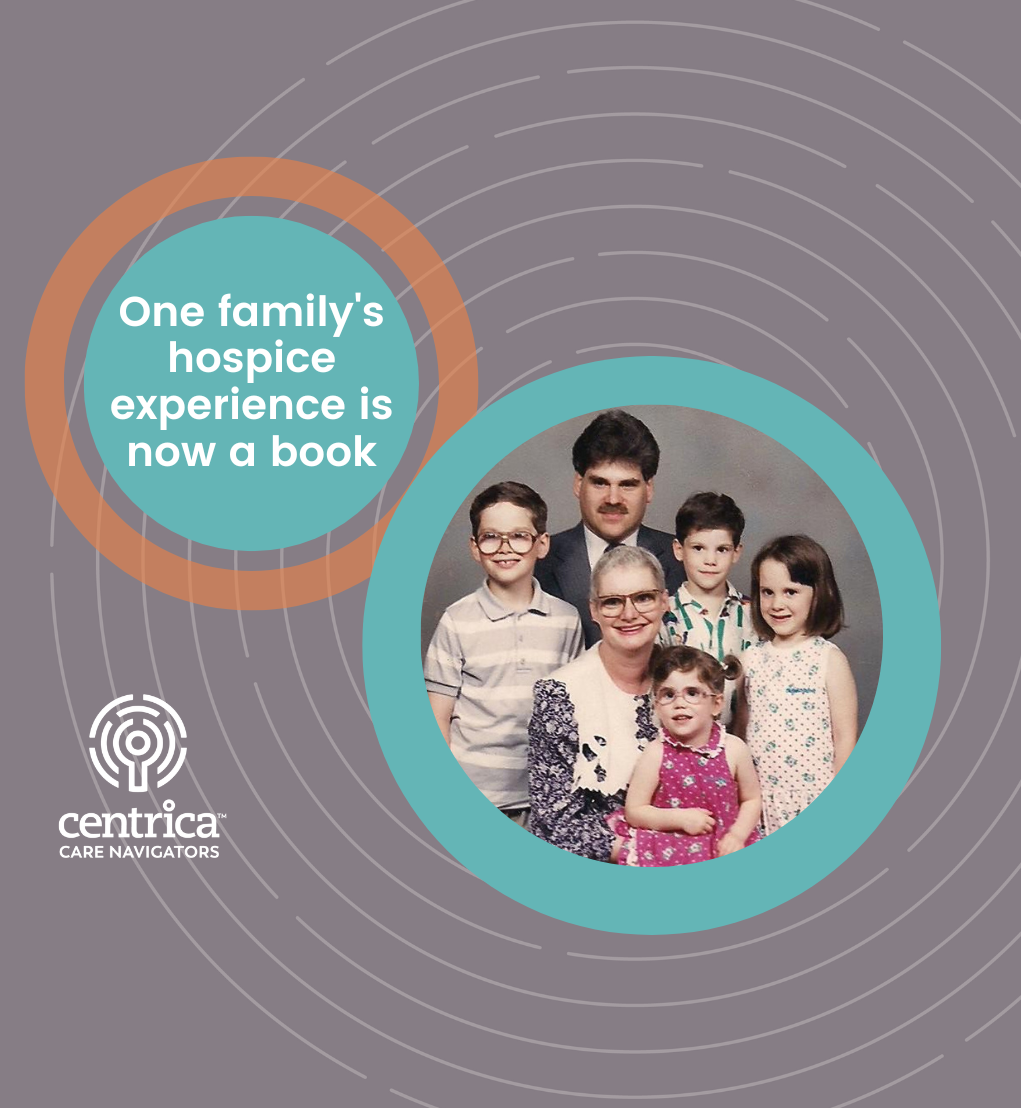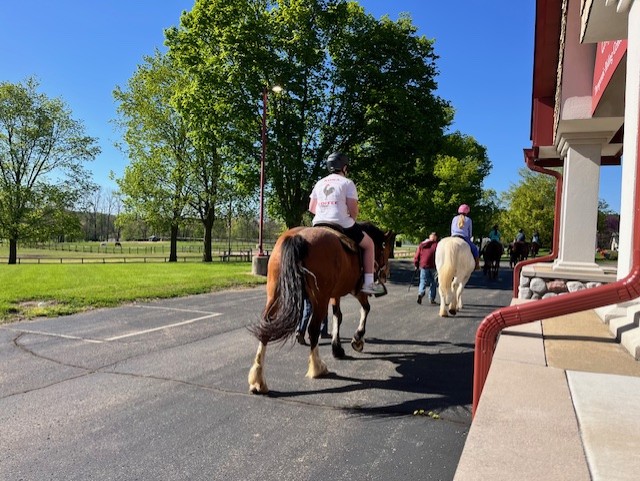Sometimes, end-of-life care can have long-lasting effects, decades after the care began.
Stephen Krefman of Paw Paw worked with the Centrica Care Navigators team in 1990 and 1991 (when we were under our previous name, Hospice Care of Southwest Michigan). His wife Becky died of breast cancer in April of 1991, but she met with a nurse before her death, just a few months after her diagnosis.
“My wife wanted to stay home in our bedroom until the end. Hospice made it so much easier,” Stephen says. “The hospice nurse visited as her condition changed to see what changes were needed in her care. She was able to prepare me for what could happen next and helped me plan in advance what to do the night my wife died.”
After Becky’s death, Stephen and his four young children met with our grief support team, and he never forgot the service they received — the attention and understanding counselors gave to his family.
“(They were) services I didn’t think we needed until I took advantage of them and realized how much they were helping us,” he says.
One recommendation he was given was to keep a journal, to help him explore what he was thinking and feeling during her time in care. Stephen started writing down the story of his relationship with Becky, and their time in hospice.
He used the journal as the basis for a book he called Sometimes The Moon Shoots Back. He supplemented the contents of the journal with details from emails, calendars, and his memories when writing the book, but Stephen says everything that he wrote about actually happened.
“I wanted to write a book while she was sick, so the kids would have good memories of her,” Stephen says. “I felt, I have to get this out of my system. It was cathartic. It was an obsession for me to get it done.”
Slice-of-life stories
The book has slice-of-life stories of Stephen, Becky, and their family’s time together, and personal essays, like a journal or blog. Stephen compares it to Please Don’t Eat The Daisies, a book that was turned into a 1960 film.
Sometimes The Moon Shoots Back begins with Stephen’s plan to get the family back home one evening just before Christmas, after his wife’s illness leaves her stranded in a store in Kalamazoo’s Crossroads Mall. Throughout the book, Stephen reflects on managing young children, a job, everyday responsibilities, and preparing for his wife’s death, all at the same time.
The story takes place over about five months, the time between Becky’s diagnosis and her death. The title was Becky’s response to a suggestion by Stephen about doing everything they could to help her feel comfortable.
“I said, ‘Sometimes you have to shoot for the moon,’” he says. “She said, ‘Yes, but sometimes the moon shoots back.’ I tell people reading the book to think of it as a comedy, because she would have looked at it that way.”
Stage play and publication
He showed his manuscript to family and friends when it was complete. After Becky’s death, Stephen got more involved in his community, and joined the cast of several theater productions by the Paw Paw Village Players. In 2001, he turned his book into a play, which the Players performed.
He talked briefly with a publisher about releasing Sometimes The Moon Shoots Back, but put those plans on hold to concentrate on other things.
Now, though, he’s been at work on a second book, the story of his family history through the cars they’ve owned (he jokes that it should be called an “auto-biography”). His renewed interest in writing, and suggestions from his children, have encouraged him to bring Sometimes the Moon Shoots Back to a larger audience. In spring 2023, he plans to self-publish the book on Amazon.com.
Supporting his community
Helping local organizations has been a goal of Stephen’s for a long time. Proceeds from the play performance back in 2001 went to hospice care, as well as the American Cancer Society and Susan G. Komen For the Cure.
After the book has been published, he’s pledged to give the profits from the first year of book sales to Centrica Care Navigators. Stephen says advice he received from a grief counselor really did start him on a different path in life. The counselor told him about a program for children similar to our current Journeys program. It helped his children work through their grief.
The counselor suggested Stephen attend a grief session, too, if only to see what his kids were going through.
That understanding helped motivate him to take his kids to soccer, and to get the whole family involved with the Paw Paw Village Players. After a few years acting in their plays, Stephen stepped away from performing in the theater. He returned to the stage during the COVID-19 lockdown and is still involved with the Paw Paw Village Players today.
Stephen’s children are now grown, with kids of their own, and he remarried in 2010. He’s been living in Paw Paw for the past 35 years. He says telling his story helped him process the grief of Becky’s loss.
“Being there is the most important thing you can do,” he says. “You will have good days and bad days. You will have anger, despair, and other negative feelings. But you can choose to make things better or worse, even then. You can choose to let things just happen to you or to take control where control is possible and needed. Humor, love, forgiveness, and patience can be some of your best tools during those final days.”
You can learn more about our compassionate care by exploring our website or calling Centrica Care Navigators at 269.345.0273.




